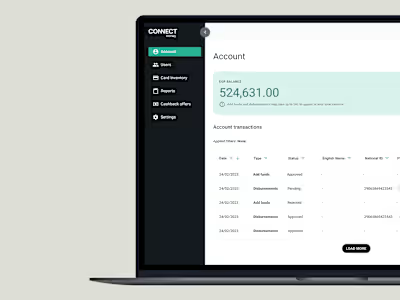Verified Reviews System

The Challenge: Fake Reviews Undermining Trust
Stan.store empowers creators to sell digital products directly to their audience. However, the platform faced a critical credibility issue:
Inflated 5-Star Ratings – Creators were gaming the system by leaving themselves fake glowing reviews
No Verification Process – Anyone could leave reviews without proof of purchase
Eroded Buyer Confidence – Fans couldn't trust product ratings, hurting conversion rates
As the lead product designer, I was tasked with redesigning the entire review system to establish authenticity while balancing creator relationships.
Design Objectives
The new system needed to:
✅ Ensure only real customers could leave reviews (prevent fraud)
✅ Give creators accountability without being overly punitive
✅ Surface honest feedback to help fans make informed decisions
✅ Lay groundwork for future marketplace/affiliate features
Key Solutions & Implementation: Building a Robust & Flexible Review System
To address the core issues of fake reviews and lack of accountability, we implemented a multi-layered verification and moderation system that gives both creators and Stan.store control over reviews while maintaining transparency for buyers. Here’s a detailed breakdown of the key features we introduced:
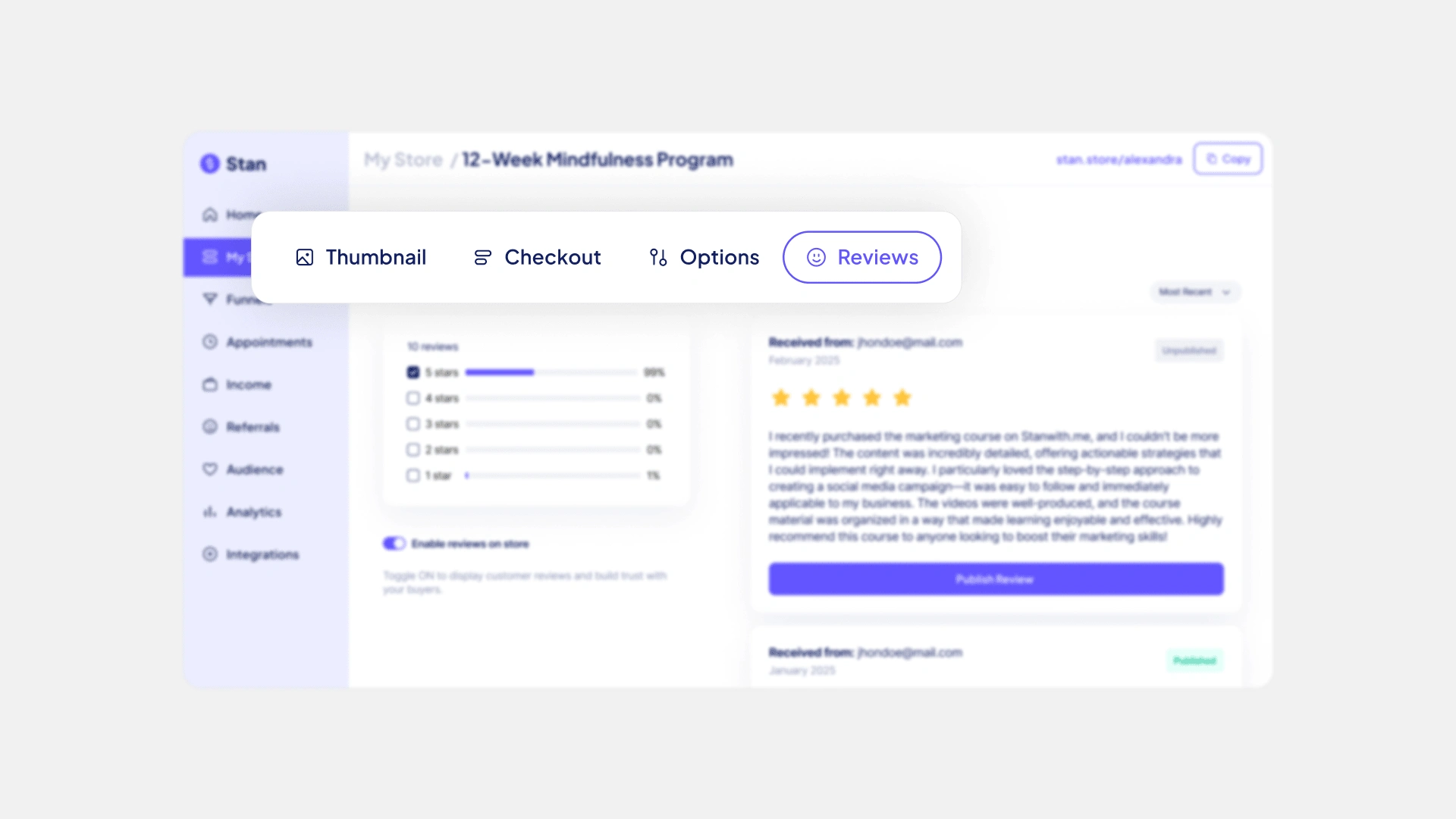
1. Toggle-Enabled Review Module in Product Setup
Problem: Creators needed flexibility to decide whether they wanted reviews enabled for specific products. Some digital products (like presets or templates) might not require feedback, while others (like courses or e-books) benefit from ratings.
Solution:
Added an on/off toggle in the product creation flow, allowing creators to enable or disable reviews per product.
Clear tooltips explain the benefits of reviews (e.g., "Enable reviews to build trust with buyers").
Default setting is ON to encourage adoption, but creators can opt out if needed.
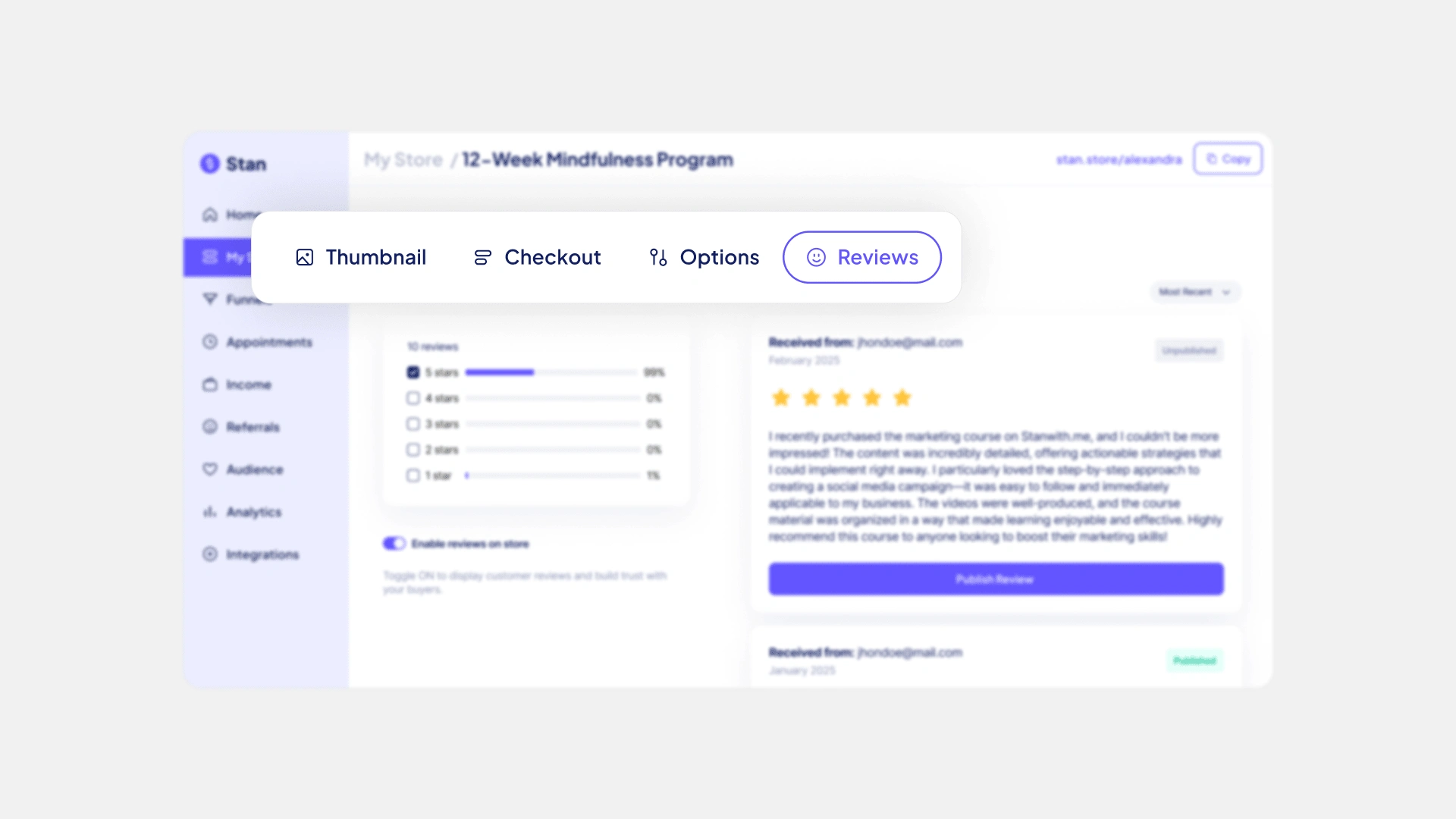
2. Dedicated Reviews Hub for Creators (TBA Call-to-Action)
Problem: Creators had no centralized way to manage reviews—leading to frustration when trying to filter, respond, or moderate feedback.
Solution: Introduced a "Reviews Hub" accessible via a TBA (To Be Actioned) call-to-action in the dashboard.
Advanced filtering options (sort by 1-5 stars, date, verified purchases).
Moderation controls – Creators can:
Publish/hide individual reviews (with transparency—hidden reviews are logged for admin oversight).
Reply publicly to feedback to engage with buyers.
Opt to display/hide all reviews on their storefront (while still collecting data internally).
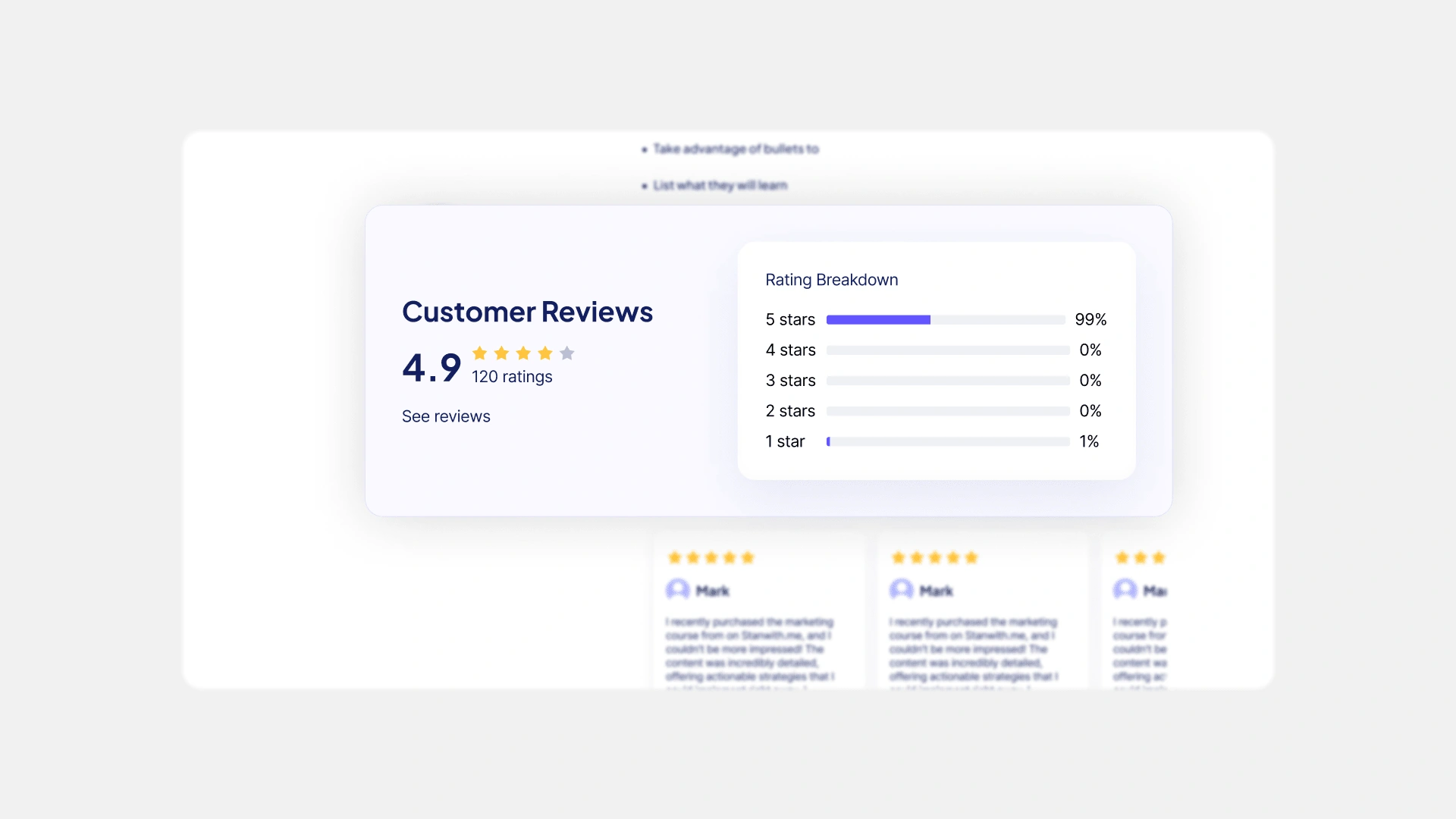
3. Storefront Review Module for Creator Pages
Problem: Buyers couldn’t easily see reviews before purchasing, reducing social proof and trust.
Solution: Designed a sleek, embeddable review module for creator store pages.
Key features:
Star rating summary at the top (e.g., "4.8 ★ from 243 verified buyers").
Paginated review cards with:
Buyer profile (name/avatar, if public).
Verification badge ("Verified Purchase").
Helpfulness votes ("Was this review helpful? 👍 👎").
Optional display settings – Creators can choose between:
Show all reviews.
Show only 4-5 star reviews (for social proof optimization).
Hide ratings but keep the average score visible.
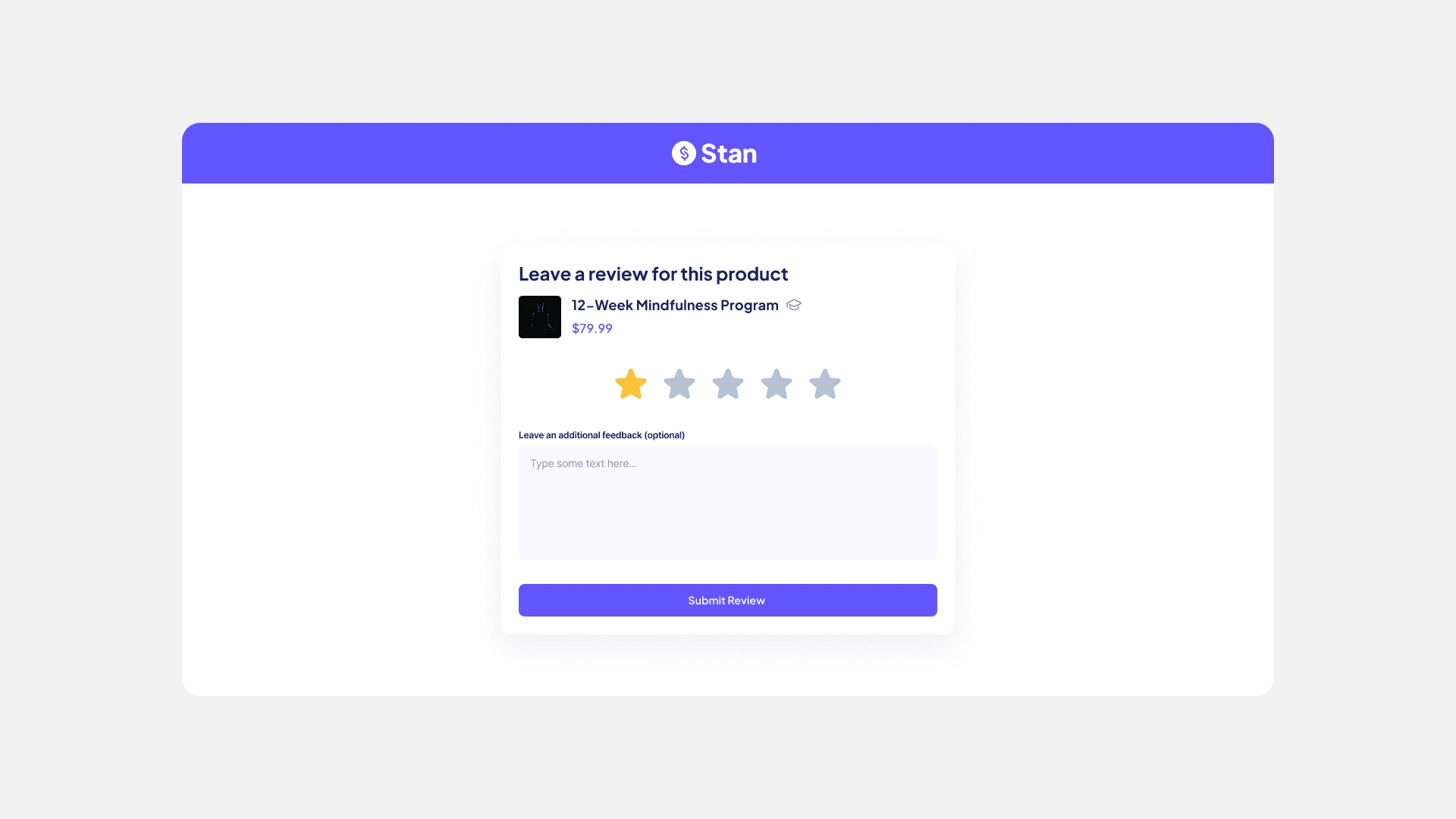
4. Post-Purchase Review Request Email
Problem: Without prompting, most buyers wouldn’t leave reviews—resulting in sparse or biased feedback.
Solution:
Designed a transactional email sent 3-7 days after purchase (allowing time to experience the product).
Email features:
Clean, mobile-friendly layout with the product image and name.
One-click rating buttons (1-5 stars) linked directly to the review landing page.
Gentle CTA: "Help other buyers decide—share your thoughts in 30 seconds!"
Anti-fraud measure: Only purchasers can leave reviews (verified via order ID).
Like this project
Posted Apr 14, 2025
A complete reviews flow, from verified buyer prompts to a creator hub for managing, curating, and displaying authentic feedback.
Likes
12
Views
164
Timeline
Feb 12, 2025 - Ongoing
Clients

Stan





